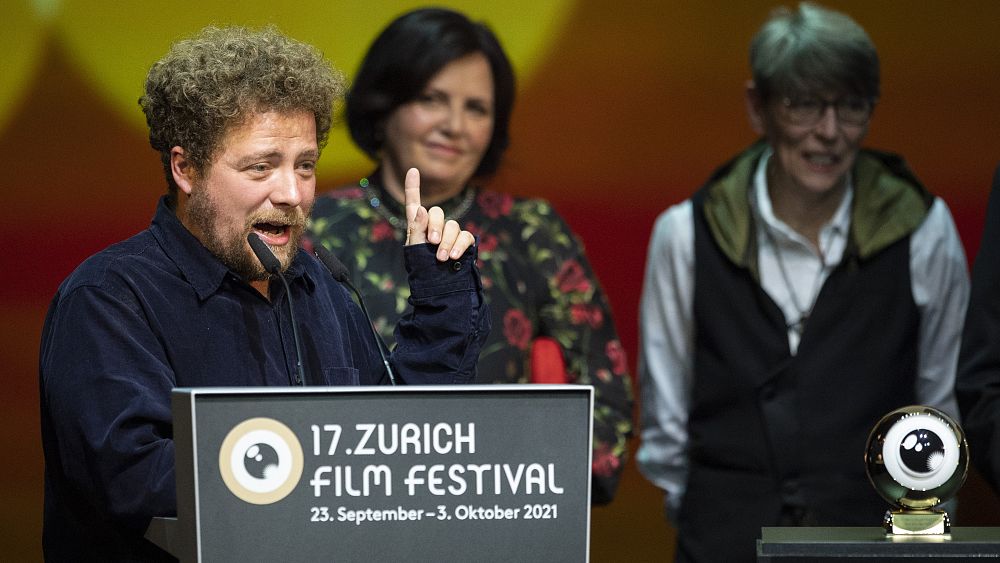
A new generation of European filmmakers is emerging at the international level, producing films that are free, liberated from convention and that address the issues of today’s youth including sexuality, the coronavirus pandemic, and the uncertainty of the future.
Three films recently awarded at the Zürich Film Festival provide perfect examples: ‘A Chiara’ by the Italian Jonas Carpignano, who won the Directors’ Fortnight Prize at the last Cannes Film Festival; ‘La Mif’ by the Swiss Fred Baillif; and ‘Youth Topia’ by Dennis Stormer and Marisa Meier.
After the highly acclaimed ‘Mediterranea’ in 2015 on the issue of migrants, ‘A Chiara’ follows the story of a 16-year-old girl in southern Italy confronted with the unforgiving world of the Calabrian Ndrangheta mafia, which she courageously tries to “decode”, and the activities of her own family.
The jury was particularly struck by what they described as “a modern interpretation of traditional Italian neorealism”.
Carpignano’s movie was just awarded the prestigious Golden Eye at the 17th Zürich International Film Festival which concluded on October 3.
Switzerland basked in a moment of glory too, with Frédéric Baillif’s ‘La Mif’ winning not only the Golden Eye in the Focus Competition — an award that only goes to the best films from Switzerland, Germany or Austria — but also the Ecumenical Film Award.
A heart aching examination of the juvenile care system in French-speaking Switzerland, ‘La Mif’ plows a blurred line between documentary and fiction.
Baillif’s social drama takes place in a foster home where a group of girls from broken families meet and try to find a new family.
A former social worker himself, Baillif worked hand in hand for over two years with his protagonists, a cast composed of natural actors who live at a Geneva care home.
The director also let the teenage girls participate in the script, which added to the remarkable performances.
Staying with Switzerland, Dennis Stormer and Marisa Meier’s first film ‘Youth Topia’, which was presented in a world premiere, walked away with the Audience Award.
A German-Swiss film about today’s youth, ‘Youth Topia’ tells the story of frustrated young adults and their nostalgia for adolescence, especially during the pandemic.
In addition to being European, the three films depict the daily lives of modern-day heroines, honest and pugnacious women who defy the conventions of the societies in which they live in order to uphold their own ideals.
Honorary prizes were also given to Sharon Stone, Pamela Abdy, Paolo Sorrentino, Mychael Danna, and Paul Schrader.
The list of winners is as follows:
Fiction Competition
Golden Eye
- ‘A Chiara’ – Jonas Carpignano (Italy/France/Sweden/Denmark)
Special Mentions
- ‘Jockey’ – Clint Bentles (USA)
- ‘Ballad of a White Cow’ – Behtash Sanaeeha, Maryam Moghaddam (Iran/France)
Documentary Competition
Golden Eye
- ‘Life of Ivanna’ – Renato Borrayo Serrano (Russia/Norway/Finland/Estonia)
Special Mentions
- ‘Soy libre’ – Laure Portier (France/Belgium)
- ‘Sabaya’ – Hogir Hirori (Sweden)
Focus Competition
Golden Eye
- ‘The Fam’ – Fred Baillif (Switzerland)
Special Mention
- ‘Behind the Headlines’ – Daniel Andreas Sager (Germany)
ZFF Competition for Children
Jury Prize
- ‘The Wolf and the Lion’ – Gilles de Maistre (France/Canada)
Other Awards
Audience Award
- ‘Youth Topia’ – Dennis Stormer (Switzerland/Germany)
Science Film Award
- ‘All Light, Everywhere’ – Theo Anthony (USA)
Emerging Swiss Talent Award
- ‘Azor’ – Andreas Fontana (Switzerland/France/Argentina)
Best Music in an International Film
- ‘Black Label’ – Andrey Mordovsky (Spain) (short film)
Having attracted 102,000 visitors this year – a 50% increase from last year and far more than expected –, the Zürich Film Festival that started on September 23 concluded on a very positive note on October 3.
“Many filmmakers were able to present their films to a real audience in a movie theatre for the first time and were touched by their encounters with the viewers,” ZFF artistic director, Christian Jungen, said.